The company Mondiale has existed for almost 100 years. But did you know that our origins go back a lot further? To 1860 to be precise. That’s when the Fondu family business in Vilvoorde put the metal industry on our map. Since 1921 this company has been known as Mondiale.
For decades Vilvoorde was the beating heart of the Mondialists. This is the remarkable and wonderful story of Mondiale, recorded for you in a 6-part mini-series.
PART 4: 1936 to 1980
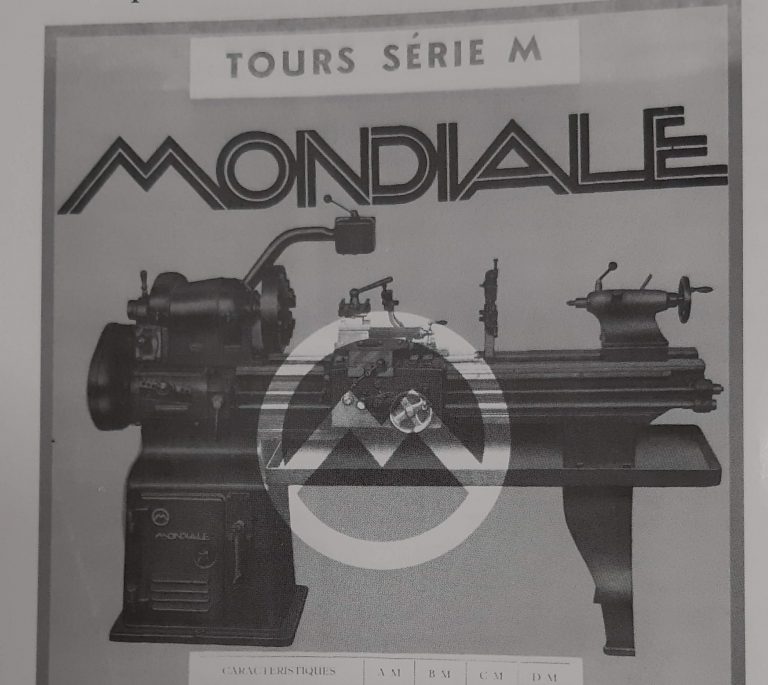
From 1936 Mondiale began full-scale production of lathes.
Initially they were produced one by one, but for the model “M” an assembly line was set up in 1938.
Incidentally, these M lathes were the first lathes to be equipped with their own motor. Over the 10 years that followed, thousands of them were in operation. Modiale sold them worldwide.
The turbulent years of war
When the Germans invaded our country, some board members and employees fled to a factory in France. The intention was to move all of the equipment there. But those plans were thwarted…
The Germans commandeered the Mondiale factory in Vilvoorde where they had RE lathes produced. These were delivered to Germany, most probably for the war industry.
Although Vilvoorde was heavily bombed during WWII, the Mondiale site was miraculously spared.
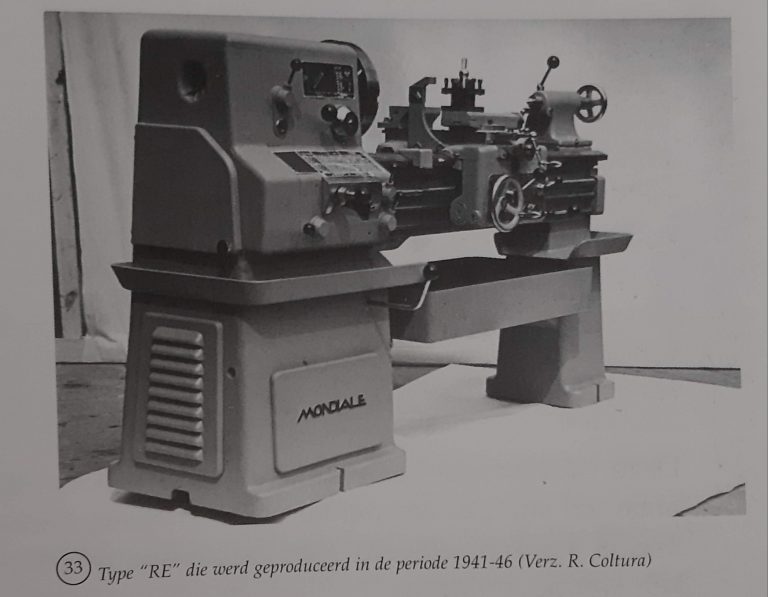
The 1950s
Shortly after the war Mondiale developed an entirely new product: the variator or “variateur“. This made it very easy to accelerate or slow down the speed of any machine. This was a popular option on the V-lathe, the successor to the M-lathe.
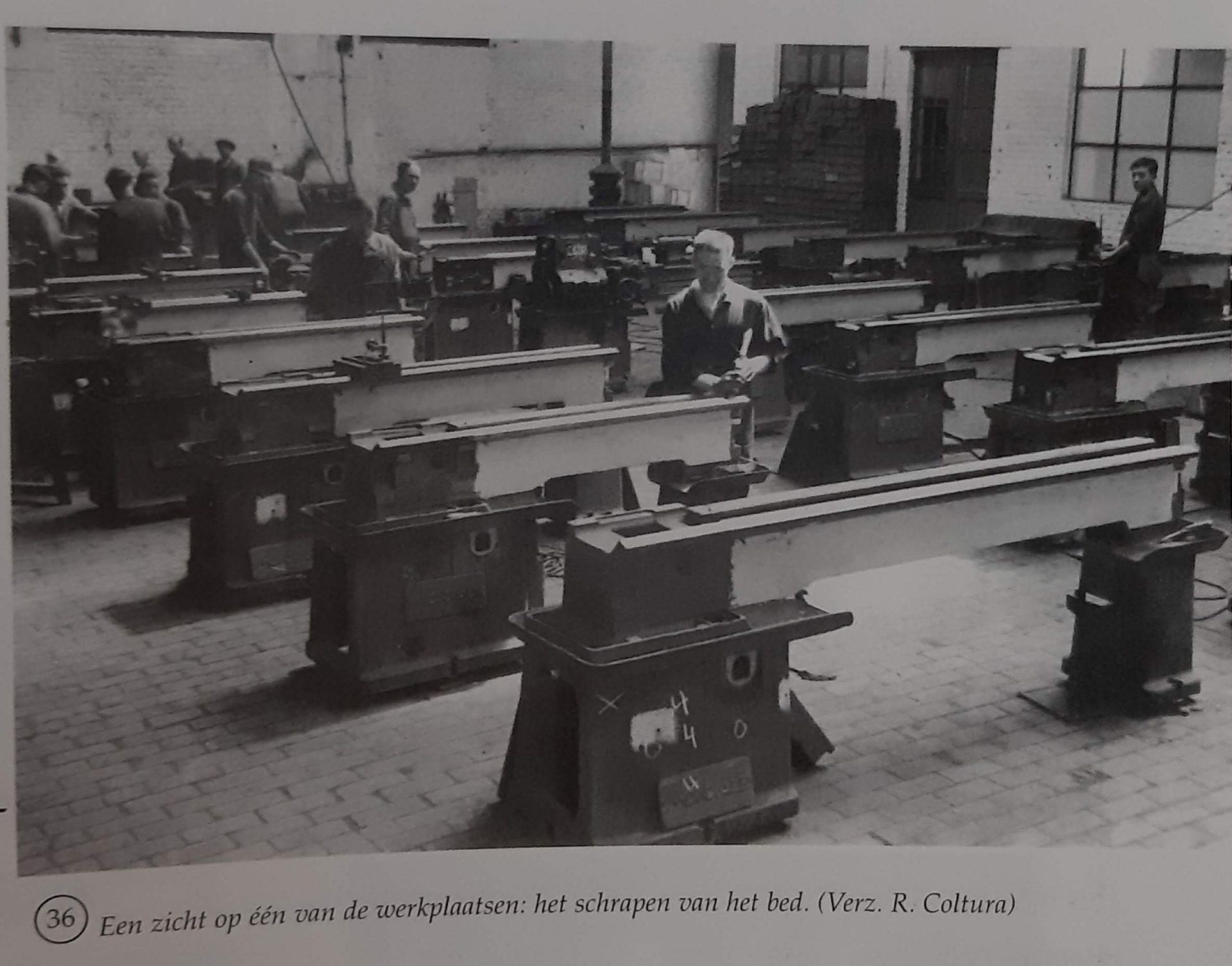
During this period Mondiale employed at least 500 people and exported 80% to 90 % of its lathes. Technical schools in particular were a major customer at the time. Gradually, several models were added to the range, such as the Simplex, the Viking and later the Selectronic.
From 1960 to 1970
But the company only really experienced a golden age when trade within Europe became duty free. With their latest lathe, the CELTIC 14, Mondiale really conquered the whole world.
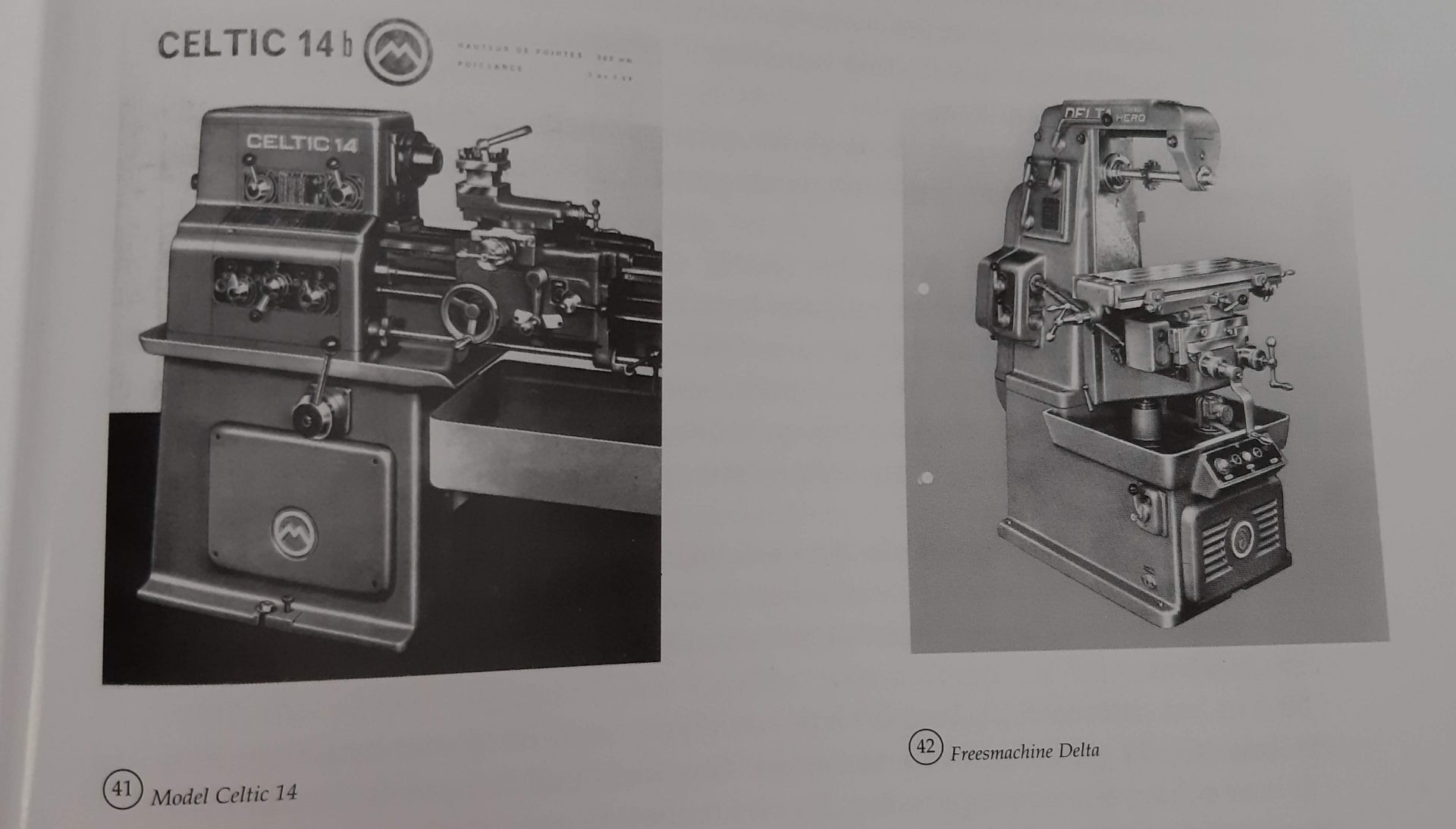
Later followed the equally popular GALLIC series. Even later, milling machines were added: the DELTAs and the VIKINGs. And in 1966, the first (semi-)automatic lathe, the GALLICOP, was added to the range.
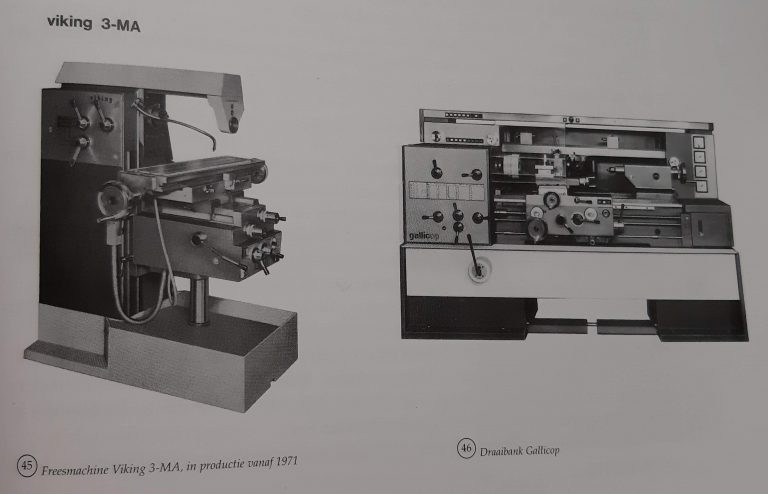
A machine made by Mondiale was not only functional, but also a real eye-catcher in the workshop. That’s why, on several occasions, Mondiale received the quality label Le Signe d’Or (Gold Medal) from the Belgian Institute for Industrial Design.
Mondiale in education
Up until the 1970s, Mondiale supplied lathes and milling machines on a large scale to technical schools, both in Belgium and abroad.
A special version of the Simplex model was even made for educational purposes.
In addition, Mondiale developed valuable teaching tools for practical lessons with the devices “Tic-Tac” and “Didacton”. The company also had a partnership with the former BRT for school television broadcasts.
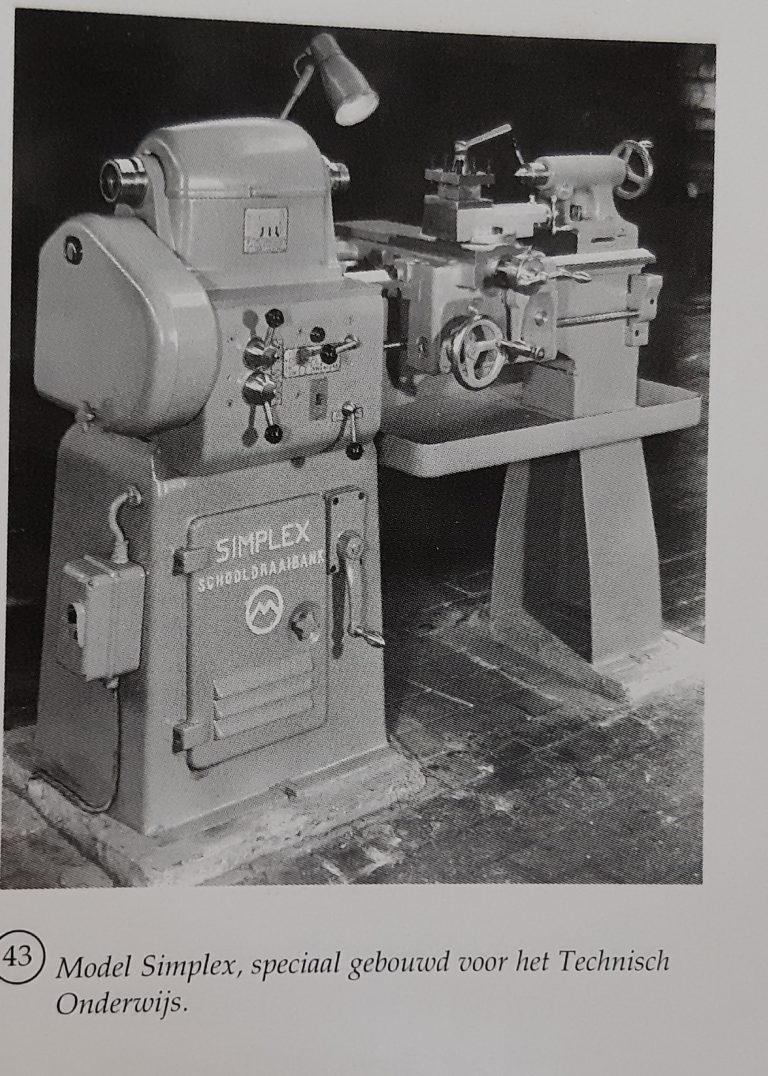
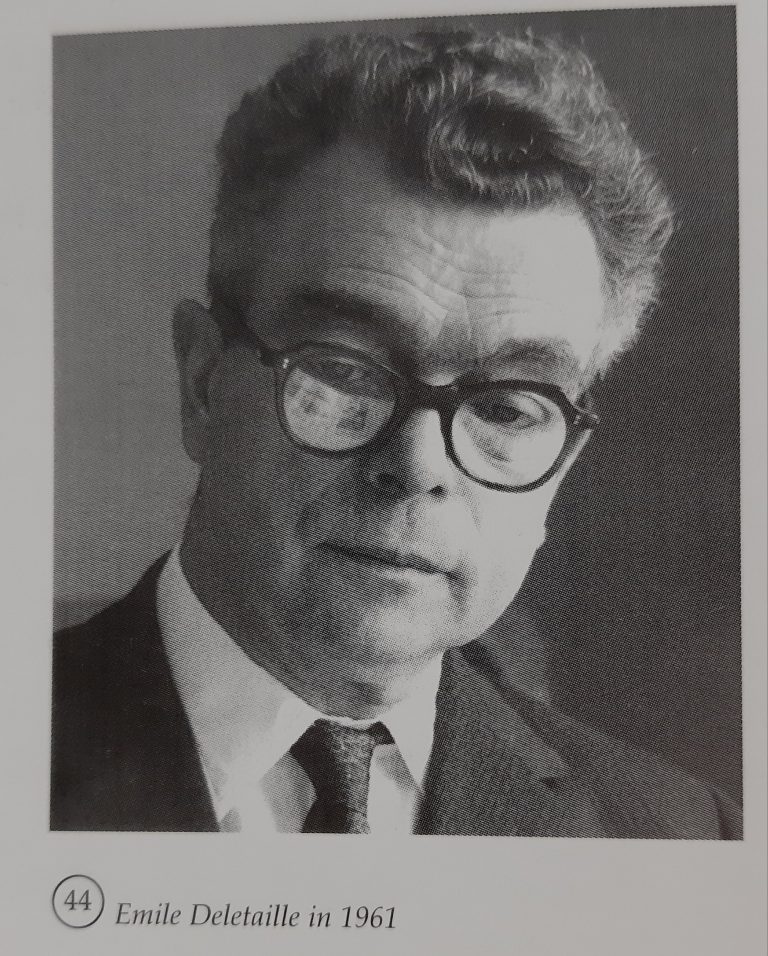
From 1970 to 1980
Throughout this period, Mondiale was skilfully guided through its ups and downs by Mr Emile Delataille (born 1898). He was Director General for 44 years until his death in 1975.
Up until then, the company – now known as “Mondiale NV” – withstood the vagaries of the market well. But the oil crisis of 1974 irreversibly turned the tide.
Mondiale faced increasingly fierce competition from low-wage countries and did not immediately focus on digitally controlled lathes.
Turnover dropped drastically and from 1977 the situation became critical.
A judicial settlement, an internal reorganisation and even a government support programme were all to no avail.
In September 1980, the company was declared bankrupt. Workers then blocked the Brussels-Mechelen trunk road in the hope of obtaining something from the government.
But sadly… 266 employees lost their jobs. And Belgium lost one of its best machine tool manufacturers.
Or maybe not?
That’s what you’ll find out in the next part of this wonderful story of Mondiale!
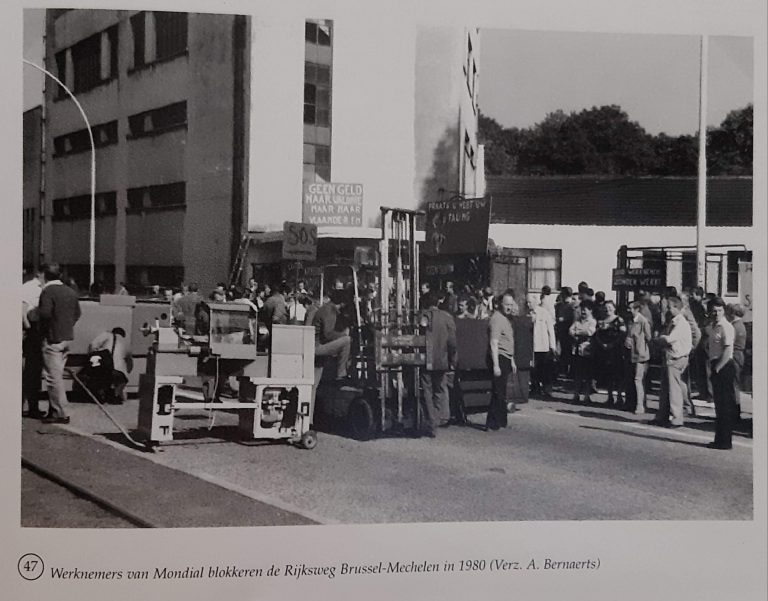
The History of Mondiale part 5/6
Source: STAPPERS, M. (1998). The remarkable history of a Vilvoords Metal Construction Company – 1860-1989. Vilvoorde, Dupress Vilvoorde.
